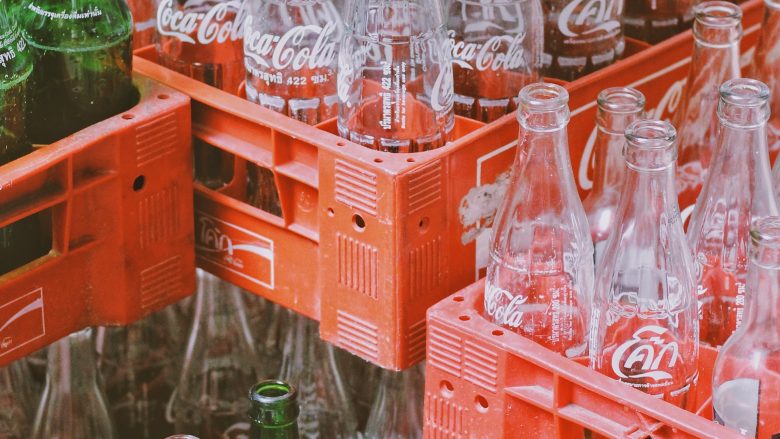Massachusetts Bottle, Can Deposit Fee Sees 22.3 Percent Revenue Increase Amid Coronavirus Shutdown
By Tom Joyce | June 18, 2020, 9:05 EDT

During an instant recession caused by the coronavirus shutdowns, the state government of Massachusetts took in 22 percent more revenue from deposit fees on bottles and cans in March, April, and May than it did during the same time last year.
Why the difference?
Fewer people returned bottles and cans for a nickel apiece because it was harder to do so, and the state kept the difference.
The Bay State’s abandoned deposits revenue this past March was $5,567,807, an uptick over the $4,167,181 it collected in March 2019. Additionally, the number topped the state’s totals for February 2020 ($4,041,401) and January 2020 ($4,849,590). In April, the figure was $5,117,693, a slight decrease from the $5,214,766 collected in April 2019. In May, however, it increased to $5,638,872 — up from $3,958,691 in May 2019.
That means in March, April, and May 2020, the state collected $16.32 million in abandoned deposit revenue compared to $13.34 million over that same span in 2019. That’s a difference of about $2.98 million, a 22.3 percent increase in revenue.
On March 18, the Massachusetts Department of Environmental Protection and the Massachusetts Attorney General’s Office suspended enforcement of the state’s regulation that ordinarily requires retailers like grocery stores and liquor stores to accept beverage containers with bottle deposits. The suspension continued until June 5, when the requirement resumed.
Did that mean Massachusetts businesses stopped charging people the five cents per bottle and can? No.
However, some observers say that would have been a good idea.
In a time where many are struggling financially, MassFiscal spokesman Paul Craney the state should not have been trying to extract more money from people.
“When state government locks itself down from even being able to collect fees it could otherwise collect, you know you’ve taken it too far,” Craney told New Boston Post in an email message on Wednesday. “The state is stepping over itself throughout the lockdown and the best thing they can do is to allow for individuals and businesses to use their common sense and safely re-open on pace with the rest of New England.”
In Michigan, one of 10 states with a bottle and can deposit, the Mackinac Center, a right-leaning think tank, called for states to suspend or repeal their bottle deposit law on March 19 — which they have not done.
“The redemption of bottle deposits involves Michiganders carrying millions of unwashed but massively handled — and possibly contaminated — loose items for more touching and handling in grocery stores,” the Mackinac Center suggested at the time. “This pandemic has transitioned the bottle deposit scheme from a massively unsanitary idea to a potentially lethal one.”
Mackinac Center communications director Holy Wetzel told New Boston Post on Wednesday that she expects that fewer bottles will be thrown away this month than in past months because people want their money back.
“Michigan reopened bottle deposit center’s this week, so we expect that there will be an influx in returns,” she said in an email message. “However, many people also either just recycled their bottles or threw them away, so we expect there will still be some revenue leftover.”
Last month, Patrick Marvin, a spokesman for the Massachusetts Executive Office of Administration and Finance, told New Boston Post that his department recommended that people held onto their cans and bottles if their local redemption center was closed.
At the time, he told New Boston Post why the state charged people the bottle deposit fee during the shutdown.
“Ceasing collection of the deposit and then restarting collection would present logistical challenges for consumers and retailers,” he told New Boston Post in an email message in May. “Each container sold in Massachusetts is currently labeled with a deposit and that label signifies that the container has a deposit value. If a nickel was not collected at the point of sale, the bottle can be redeemed for a nickel later due to the labeling.”
On Wednesday, he had no further comment on the situation, and referred New Boston Post to a press release explaining how bottle redemption centers would be re-opening this month.
Although it would have been difficult to find grocery stores and liquor stores accepting bottle deposits during the shutdowns, New Boston Post reached out to several bottle redemption centers in the first week of May to see if any were open. Some were — in urban areas.
Employees for Taunton Redemption Center, Mattapan Bottle & Can Return, Lowell Bottle & Can Return Center, Pennywise Check Cashing (Worcester), and Haverhill Road Redemption Center told New Boston Post by telephone that they were open. In the suburbs, there was less luck. Places like Cohasset Redemption Center, Cans and Bottle Redemption Center (Milford), and Temple Redemption Center (Whitman), among others, were closed.











